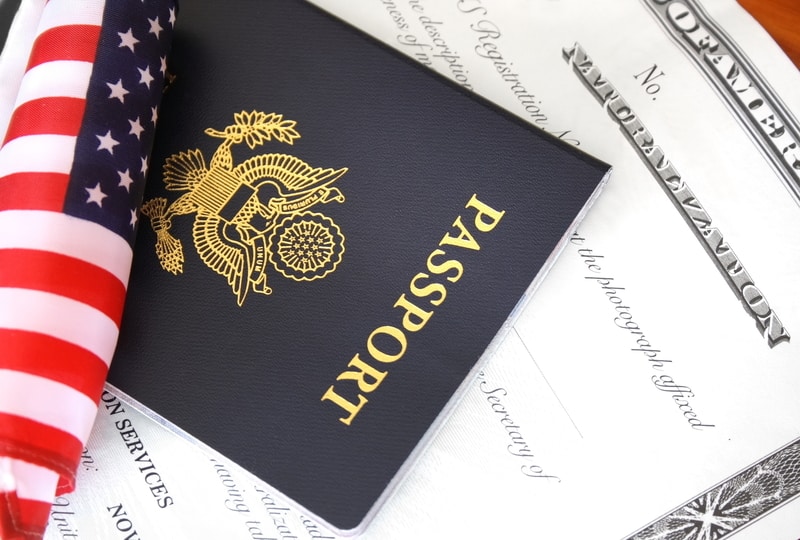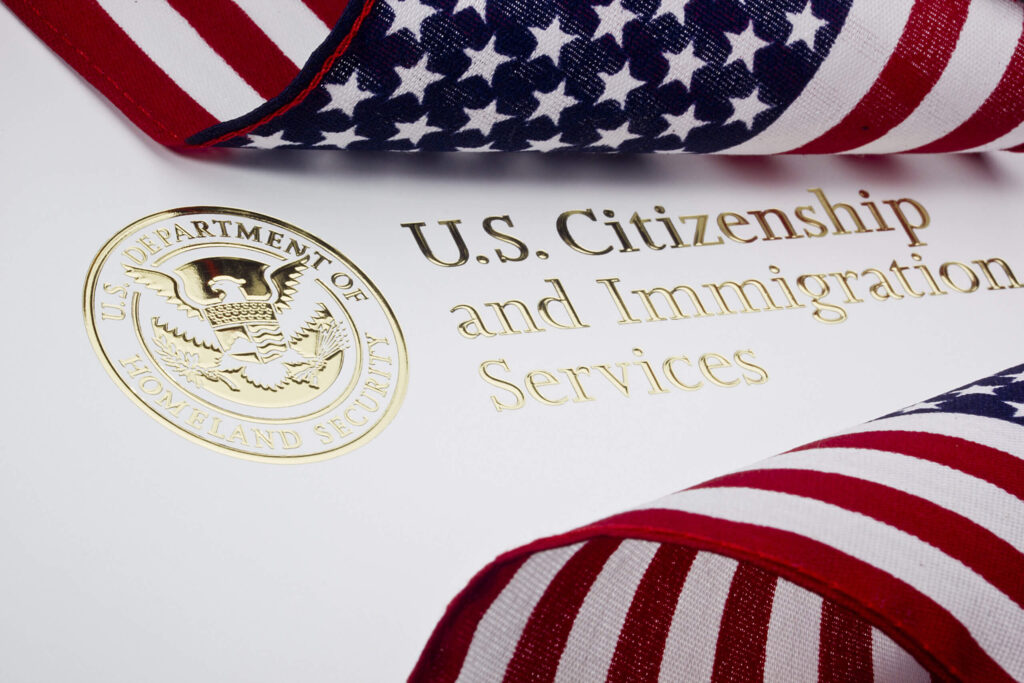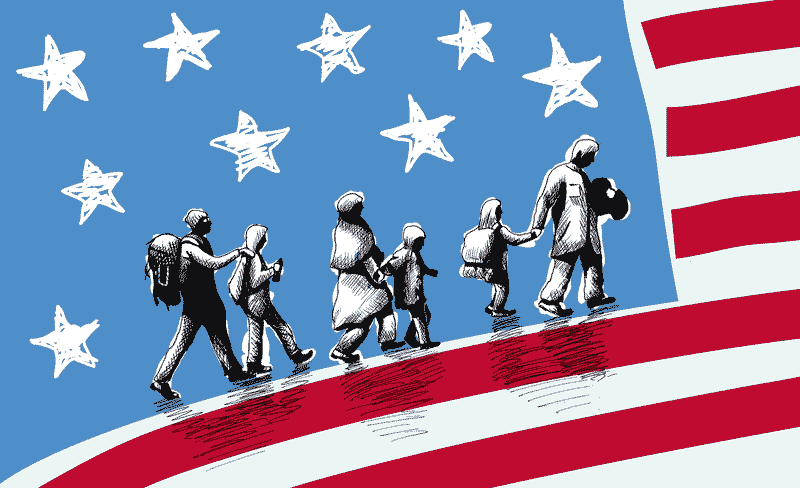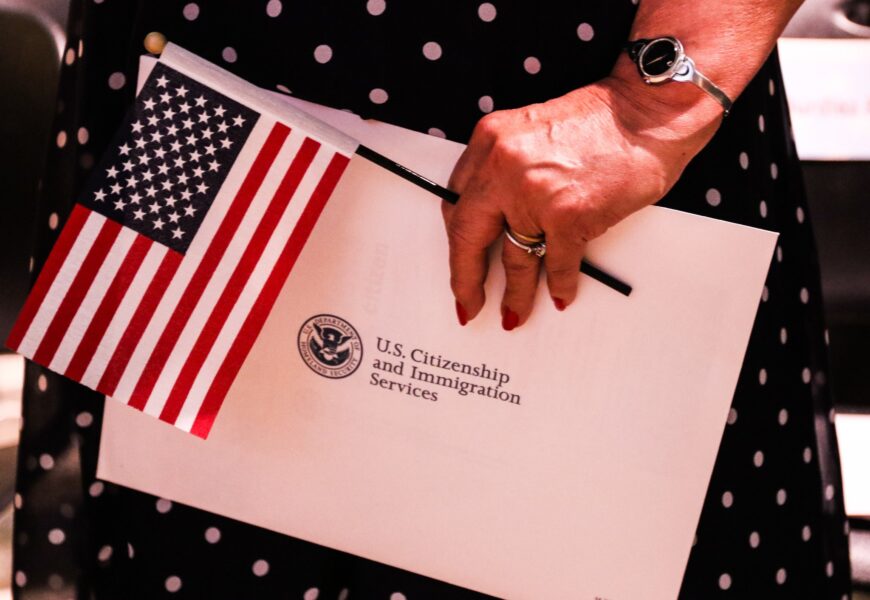Unlocking the Door to a New World: The Transformative Journey of Immigration and Citizenship
KEY TAKEAWAYS:
- Immigration and citizenship laws govern moving to a new country and becoming a citizen.
- Immigration attorneys provide essential guidance through the complex immigration process.
- Immigrants have rights and responsibilities, while citizenship grants additional privileges.
- Immigration policies impact demographics, diversity, and economic growth.
- Challenges include waiting times, fraud, language barriers, and assimilation difficulties.
- Vigilance and reputable legal counsel are vital to avoid scams.
- Promoting language acquisition and cultural understanding aids integration.
- Balancing cultural identity and embracing new customs is essential for assimilation.
- Immigrants contribute diverse perspectives to their new homelands.
Immigration and citizenship play a vital role in shaping societies and promoting cultural diversity. The legal process of immigration and citizenship involves regulations, requirements, and procedures that individuals must understand to migrate to a new country.
Understanding the legal process involved in immigrating and obtaining citizenship aim to bridge gaps, promote dialogue, and celebrate the diverse contributions of individuals who enrich the vibrant fabric of our world.
This article explores different aspects of immigration, including its economic opportunities, family reunification, and humanitarian protection, and highlights the transformative journey toward citizenship. It also examines the legal framework that supports these concepts, focusing on the role of immigration attorneys in guiding individuals through the intricate legal maze. Additionally, this discusses the rights and responsibilities associated with becoming an immigrant or citizen, emphasizing the profound impact of immigration policies on communities.
Understanding Immigration
Immigration is a cornerstone of societal growth and cultural diversity, facilitating the movement of individuals across borders. Some migrate to be closer to family, pursue educational opportunities, or find employment or economic prospects. Others relocate to flee hostilities, threats, terrorism, or human rights violations. Others relocate in reaction to the unfavorable consequences of environmental variables like natural catastrophes or climate change.
Different Types of Immigration

Among the various avenues for individuals seeking a new homeland, economic immigration and family-based immigration are prominent routes driven by distinct motivations. Additionally, refugee and asylum immigration caters to a pressing humanitarian need, providing sanctuary for those escaping perilous circumstances.
- Economic Immigration: This avenue attracts individuals seeking professional opportunities and prosperity. Countries create specialized programs to target individuals with specific skill sets that align with their economic needs. Economic immigrants contribute to the host country’s economy, fostering innovation and cultural diversity.
- Family-Based Immigration: Family-oriented, this category allows individuals to reunite with immediate family members already permanent residents or citizens in the destination country. It aims to keep families together and provide support as immigrants adapt to their new lives.
- Refugee and Asylum Immigration: This form of immigration offers protection and sanctuary to those fleeing persecution, violence, or human rights violations in their home countries. Refugees and asylum seekers undergo thorough screening to determine their eligibility for protection, reflecting humanitarian principles and support for vulnerable populations.
Difference Between Immigrants and Citizens
Each legal status for citizens and immigrants is different. People who are not citizens of the United States and may have different legal statuses are referred to as immigrants in this country. An immigrant might be undocumented without the proper documentation to live in the nation or a lawful permanent resident. People who have immigrated are those who have gone abroad for reasons.
On the other hand, the greatest degree of legal standing and protection is given to a nation’s citizens. Citizens of the United States may be born there, be the children of citizens of the United States, or acquire citizenship via the legal process of naturalization. Citizenship bestows fundamental rights and advantages, such as the ability to vote, stay in the country permanently, work, and get a passport for travel abroad. Additionally, citizens are guaranteed their participation in civic life and government by the full force of the nation’s laws and constitution.
In short, immigrants are people who have relocated to another nation. At the same time, citizens have full legal status in that country, along with all the rights and advantages that go along with it. Although immigrants may have a variety of legal statuses, only citizens are guaranteed a sense of identity and full involvement in their country’s affairs.
Immigration Policies and Regulations
Immigration laws and policies have been essential in influencing the dynamics of contemporary societies as the globe continues to see unprecedented levels of global mobility.
Visa Requirements and Categories: Visas are necessary entrance permits that specify the terms under which someone may enter and remain in another nation. The numerous visa types mandated by immigration laws are individually geared to certain objectives like tourist, study, job, or family visits. Prospective immigrants must comprehend the complexity of visa requirements, including application procedures, supporting documentation, and potential stay time restrictions. Adherence to visa requirements ensures seamless and legal entry into the target country.
Immigration Quotas and Limitations: To efficiently regulate immigration flows, several nations set quotas and restrictions on the number of immigrants who may enter each year. Economic requirements, population trends, and general immigration laws are just a few factors affecting these quotas. To maintain a balance between fostering variety and controlling the effect of immigration on society, immigration officials routinely review and modify these boundaries.
Immigration Pathways for Highly Skilled Individuals: Recognizing the essential contributions made by experienced professionals, several countries provide specific immigration routes for highly qualified people. These channels simplify the immigration procedure and make it reasonably simple for eligible people to get work permits or permanent residence. Such initiatives promote talent acquisition, stimulate innovation, and support critical economic sectors.
The Path to Citizenship

Becoming a citizen of a nation is a monumental achievement, representing full integration and a sense of belonging to a community. However, becoming a citizen is complex, with many steps that call for patience, diligence, and fulfilling particular conditions. The two most important steps on the route to citizenship are described in this article: applying for permanent residence and going through the naturalization procedure. Aspiring citizens might plot their way to a new life by familiarizing themselves with these procedures.
Obtaining Indefinite Residency
First on the path to citizenship is securing a permanent residence. Having a family member who is a citizen or permanent resident, having an employer sponsor you, making a sizable financial contribution to the economy, or having refugee or humanitarian status are frequently requirements for eligibility for permanent residence. To become a permanent resident, applicants must satisfy certain criteria that vary depending on their chosen route.
Applying for permanent residence requires meticulous planning and compliance with all immigration requirements. Applicants must provide extensive paperwork, such as identification documents, evidence of family ties, information about current or prospective jobs or investments, medical exam results, and criminal background checks. Interviews with immigration authorities to check application details may also be required. This is a crucial step in the application process, so taking your time and getting everything right is important.
Naturalization Procedure
Citizenship by naturalization is available to those who have achieved permanent status and fulfilled all residency criteria. A commitment to support the country’s laws and ideals, proof of fluency in the language, knowledge of its history and administration, and a minimum duration of continuous residence are often necessary for naturalization. Applicants must also not have specific criminal convictions and be of high moral character.
Citizenship examinations and interviews are common components of the naturalization process for those seeking citizenship. To ensure that candidates are prepared to engage fully in civic life, the examinations examine their knowledge of the country’s language, history, and governance. The interviews give immigration authorities a chance to assess an applicant’s suitability for citizenship and willingness to integrate positively into society.
After passing the required tests for citizenship, candidates swear an oath of loyalty to their new country and are granted citizenship. The oath is a declaration of allegiance to the principles and duties of citizenship. After taking the oath, candidates participate in a naturalization ceremony to mark the occasion and proclaim their new citizenship. Naturalization ceremonies often highlight cultural wealth.
Immigration and Citizenship Law
Immigration and citizenship policies are crucial in determining how countries develop and evolve. These laws control the transformative process of becoming a part of a community, from making it easier for individuals to cross borders to detailing the rights and obligations of immigrants and citizens.
The immigration and citizenship rules of a nation serve as the system’s bedrock. These statutes establish the rules and requirements for foreign nationals who want to relocate to another country and apply for citizenship there. Visa categories under immigration law are defined by the objectives for which they will be used. However, citizenship rules specify the steps one must take to become a complete legal citizen of the nation. These statutes provide the framework for regulating immigration, encouraging cultural exchange, and protecting the rights of all residents.
The Function of Immigration Lawyers

Expertise from immigration lawyers is necessary when understanding the complexity of immigration and citizenship law. Those needing assistance navigating the legal system might greatly benefit from consulting with one of these experts. Lawyers that specialize in immigration law help applicants meet all deadlines and legal requirements while also standing up for their client’s rights. Lawyers specializing in immigration law are invaluable resources for their extensive understanding of the law and expertise in various issues.
The Duties and Privileges of Citizens and Foreign Nationals
The rights and duties of immigration and citizenship are significant and profound. The right to work, access to education and healthcare, and protection under the law are all guaranteed to temporary or permanent immigrants. They must also behave ethically, pay their fair share of taxes, and help with community projects. However, citizens have access to a wider range of privileges, including casting a ballot, seeking elective office, and traveling internationally with a passport. In exchange for these privileges, residents are expected to participate in government, pay their fair share of taxes, and defend the nation’s beliefs and principles.
Local Effects of Immigration Laws
Immigration policies have long-reaching effects on communities and society as a whole, well beyond the level of the individual. Economic expansion, cultural tolerance, and population increase are all impacted by government actions. Skilled immigrants may boost the economy by stimulating new ideas and increasing productivity. On the other hand, discriminatory or exclusive policies may drive a wedge between people, which can be detrimental to social harmony and the nations that adopt them. Therefore, it is critical for the development of vibrant communities that immigration policies be formulated that find a middle ground between national interests and humanitarian principles.
Challenges and Considerations
Hopes for a better future and a fresh start accompany a decision to immigrate to a new country. However, moving to a new country requires a strong will and the ability to overcome obstacles. This essay delves into immigrants’ difficulties, from dealing with bureaucratic backlogs to avoiding immigration-related fraud. In addition, it explores how linguistic and cultural differences may obstruct integration and assimilation, laying the groundwork for a holistic understanding of the obstacles immigrants face on their path to acceptance.
Backlogs and excessive waiting times: Agonizing delays
Sometimes the reality of lengthy wait periods and bureaucratic backlogs puts the hope of a fresh start on hold. The immigration procedures in many countries are drawn out and complicated, leading to longer time spent apart from loved ones and anxiety about the future. Immigration petition processing may take months or even years, causing stress and worry for applicants. Those seeking asylum or family reunification, for whom prompt judgments are essential, may find the backlog especially trying.
Immigration Scams and Fraud: Dangerous Terrain
Immigrants might become victims of immigration fraud and scams when they trust dishonest people while trying to realize their ambitions. Scammers prey on desperate immigrants by promising them simple methods to get visas or permanent residence. These scams not only deplete the savings of people experiencing poverty but also put their prospects of legal immigration in jeopardy. To avoid being taken advantage of, immigrants should be on the lookout for any suspicious activity and consult with an experienced attorney.
Overcoming Communication Gaps Caused by Language and Culture
It may be difficult for immigrants to assimilate into their new communities because of language and cultural limitations. Feelings of isolation and difficulty gaining access to services and job prospects might result from inadequate communication. Furthermore, cultural differences may make it more difficult for immigrants to adapt to new social norms, further isolating them from mainstream culture. Language learning and cultural orientation programs that foster mutual understanding are essential to breaking down these obstacles.
Integration and Assimilation Difficulties: Seeking a Place to Call Home
Longing for integration into one’s new home culture is a major theme of the immigrant experience. It may be difficult for newcomers to find their feet and make new friends. Immigrants often face the issue of balancing their culture with the one they’ve adopted as their new home.
Promoting social inclusion and cultivating an inclusive culture is the key to overcoming this obstacle and boosting immigrants’ feelings of belonging. To make immigrants feel at home in their new communities, fostering an atmosphere that celebrates differences and promotes mutual understanding is essential. The more work put into making their new country seem like home, the easier the integration process will be.
In conclusion, the journey of immigration is filled with challenges and considerations that demand strength, perseverance, and determination from immigrants. Enduring long waiting times and backlogs, as well as navigating the complexities of immigration fraud and scams, they face hurdles that put their resolve to the test. Language and cultural barriers can also hinder integration, emphasizing the importance of fostering inclusivity and understanding within societies.
Nevertheless, immigrants approach these challenges with optimism and fortitude because they want to feel a sense of unity and belonging in their new countries. Addressing these challenges collectively enables the creation of a more compassionate and inclusive world. By recognizing and celebrating the diverse contributions of immigrants, we enrich our shared global tapestry and build a stronger, more cohesive society.




